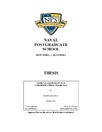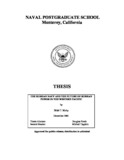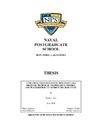ARMENIA-AZERBAIJAN WAR AND IMPLICATIONS FOR RUSSIA
| dc.contributor.advisor | Clunan, Anne L. | |
| dc.contributor.author | Kochashvili, Irakli | |
| dc.date.accessioned | 2022-06-10T17:15:47Z | |
| dc.date.available | 2022-06-10T17:15:47Z | |
| dc.date.issued | 2022-03 | |
| dc.identifier.uri | https://hdl.handle.net/10945/69661 | |
| dc.description.abstract | In September 2020, tensions in Nagorno-Karabakh escalated into a full-scale war that ended with a tripartite ceasefire agreement on November 9, 2020. The consequences of the war have significantly changed the status quo and the strategic environment of the South Caucasus. Many believe that Russia has reaped significant benefits from the war, enabling Moscow to extend Russia’s military presence in the region and broaden its influence over Armenia and Azerbaijan. But an in-depth analysis of the war’s outcomes proves the initial perceptions of Russian gains are likely inaccurate. Drawing on open-source material and scholarly research, the thesis demonstrates that Russia lost significantly in terms of exerting influence in the region. The study finds that the basis for Moscow’s influence over Yerevan was shaken while the factors contributing to Russia’s influence over Baku have diminished considerably. Moreover, the emergence of Turkey as a regional power as well as Iran’s attempt to influence the developments in the South Caucasus have amplified the negative effects of the war for Russia. Understanding the war’s consequences should be paramount for regional countries as well as for those with strategic interests in the region. Russia’s reduced influence over the region might push Moscow to take assertive steps to reverse the war’s effects. The findings documented in this thesis can help policymakers review existing security and defense policies and adapt to new realities. | en_US |
| dc.publisher | Monterey, CA; Naval Postgraduate School | en_US |
| dc.rights | Copyright is reserved by the copyright owner. | en_US |
| dc.title | ARMENIA-AZERBAIJAN WAR AND IMPLICATIONS FOR RUSSIA | en_US |
| dc.type | Thesis | en_US |
| dc.contributor.secondreader | Matovski, Aleksandar | |
| dc.contributor.department | National Security Affairs (NSA) | |
| dc.subject.author | Nagorno-Karabakh War | en_US |
| dc.subject.author | Russia | en_US |
| dc.subject.author | Armenia | en_US |
| dc.subject.author | Azerbaijan | en_US |
| dc.subject.author | Turkey | en_US |
| dc.subject.author | war implications | en_US |
| dc.subject.author | South Caucasus | en_US |
| dc.subject.author | regional influence | en_US |
| dc.description.service | Civilian, Ministry of Defense, Georgia | en_US |
| etd.thesisdegree.name | Master of Arts in Security Studies (Strategic Studies) | en_US |
| etd.thesisdegree.level | Masters | en_US |
| etd.thesisdegree.discipline | Security Studies (Strategic Studies) | en_US |
| etd.thesisdegree.grantor | Naval Postgraduate School | en_US |
| dc.identifier.thesisid | 36512 | |
| dc.description.distributionstatement | Approved for public release. Distribution is unlimited. | en_US |
| dc.identifier.curriculumcode | 688, Strategic Studies |
Files in this item
This item appears in the following Collection(s)
-
1. Thesis and Dissertation Collection, all items
Publicly releasable NPS Theses, Dissertations, MBA Professional Reports, Joint Applied Projects, Systems Engineering Project Reports and other NPS degree-earning written works.





